Outline • Howsuccessfulcanyoubeifyoustart learningasecondlanguageasanadult? • Whatarethedifferencesbetween“early”


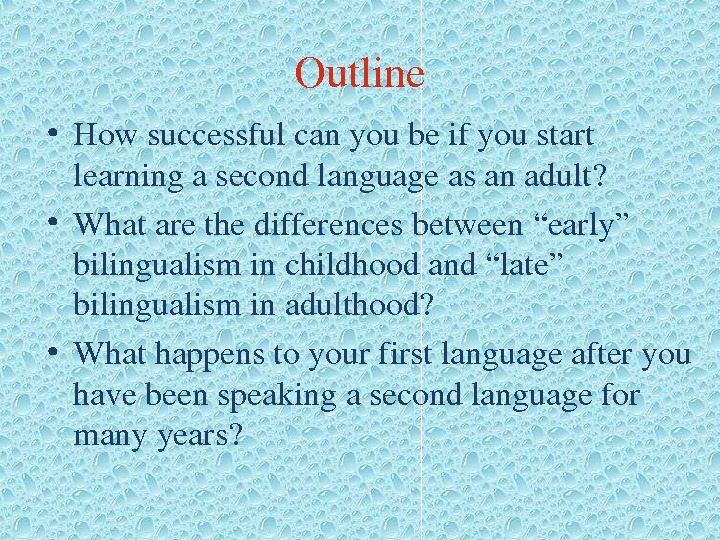
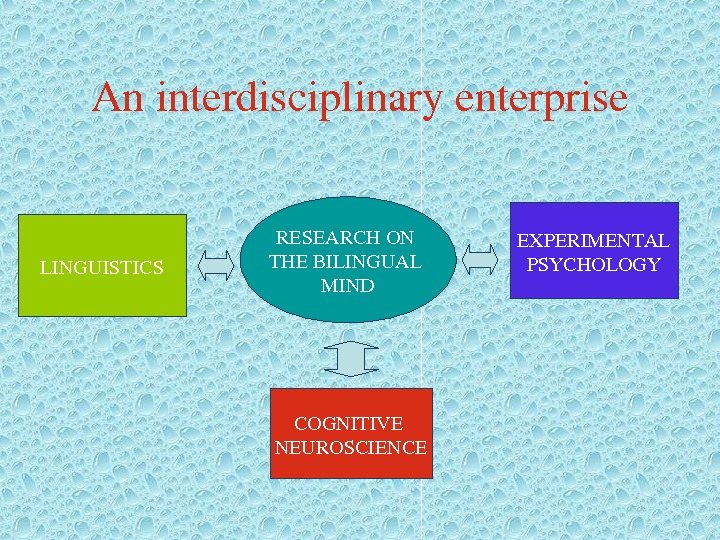
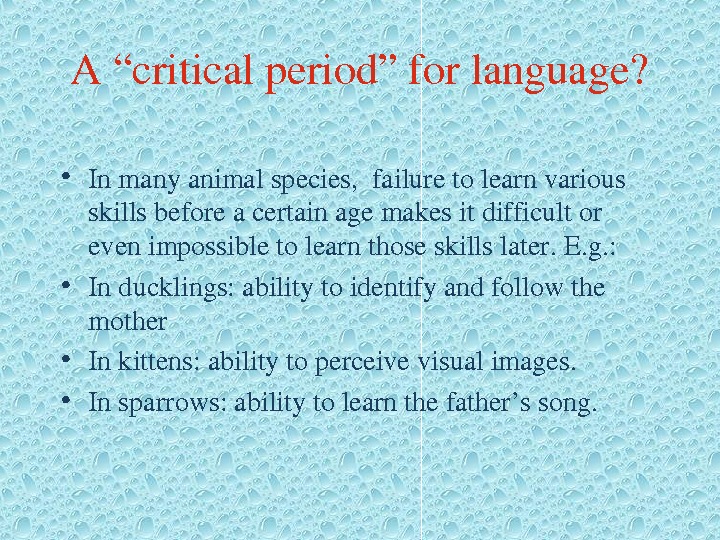



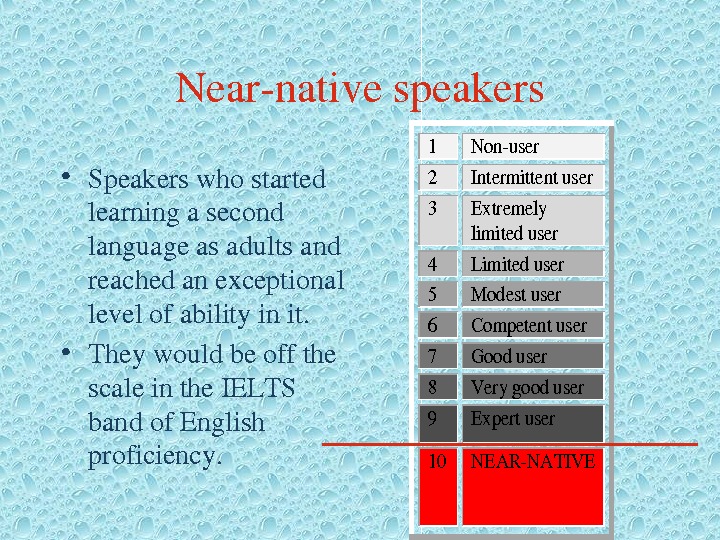
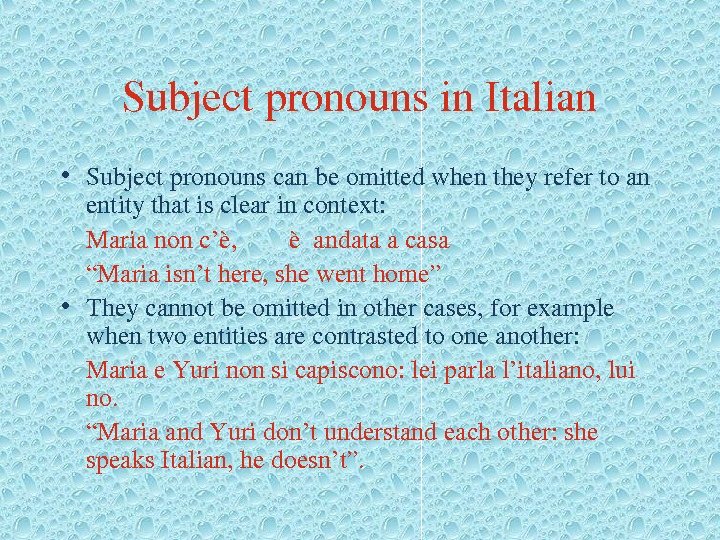
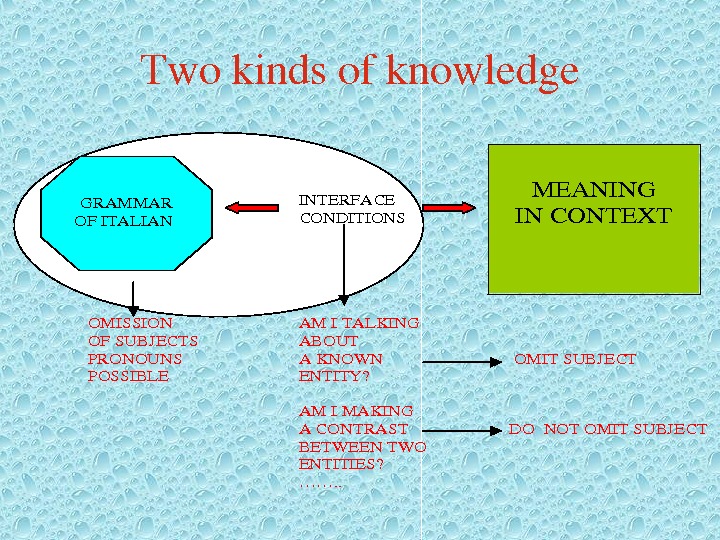




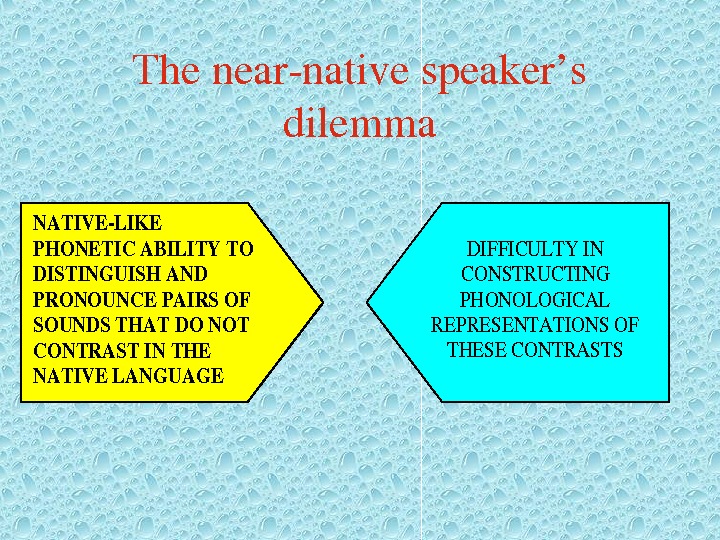
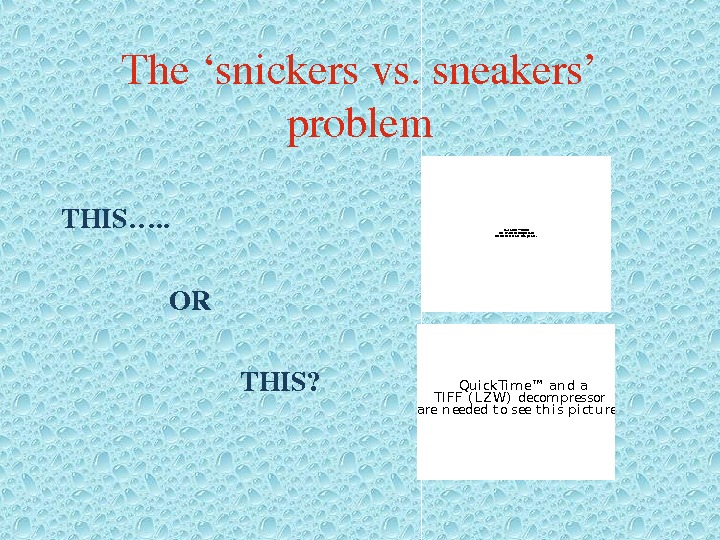




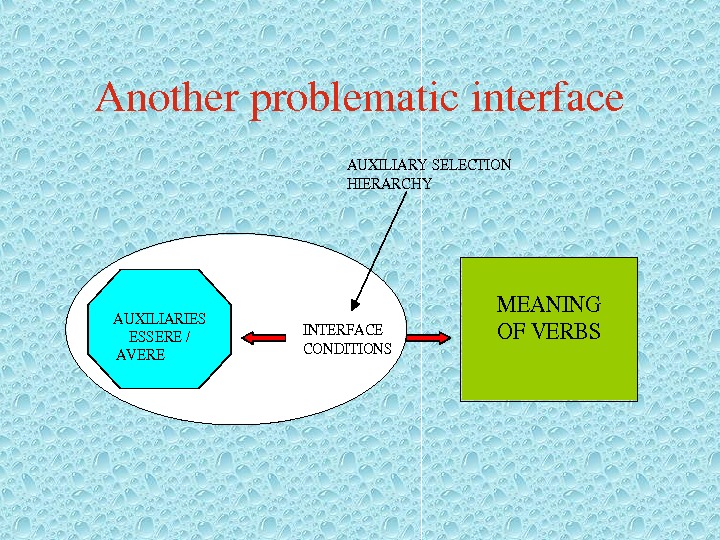
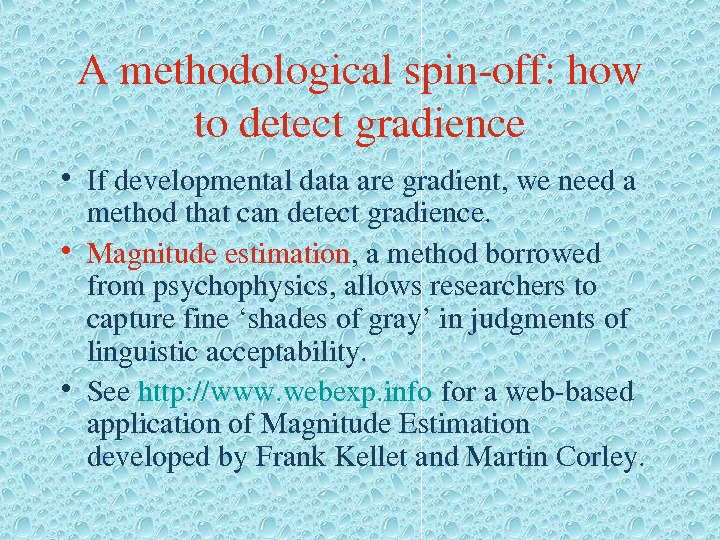



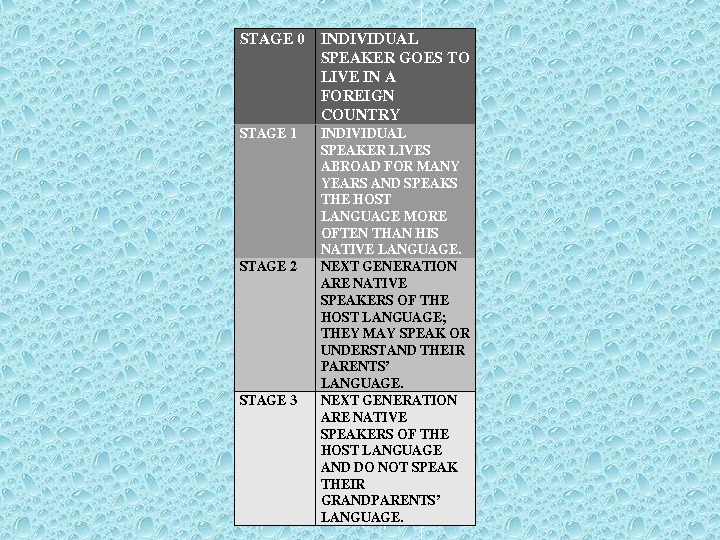
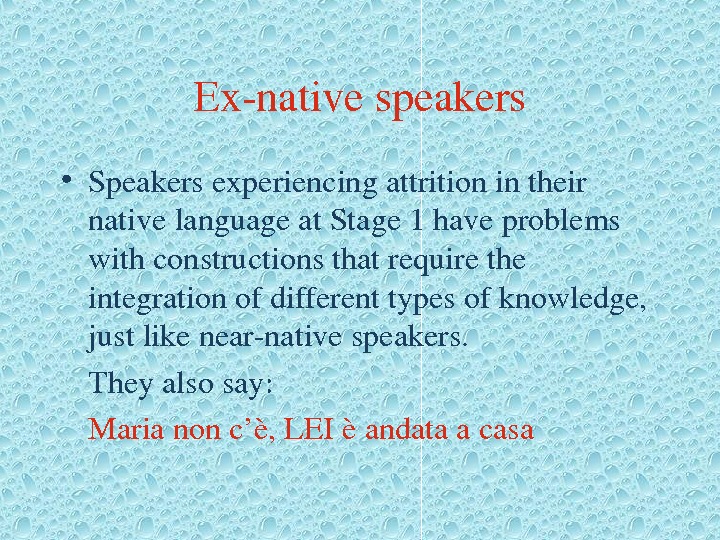

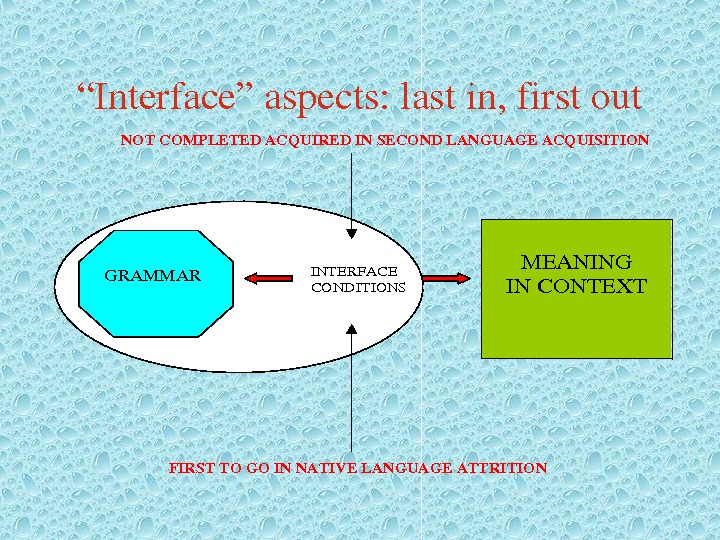
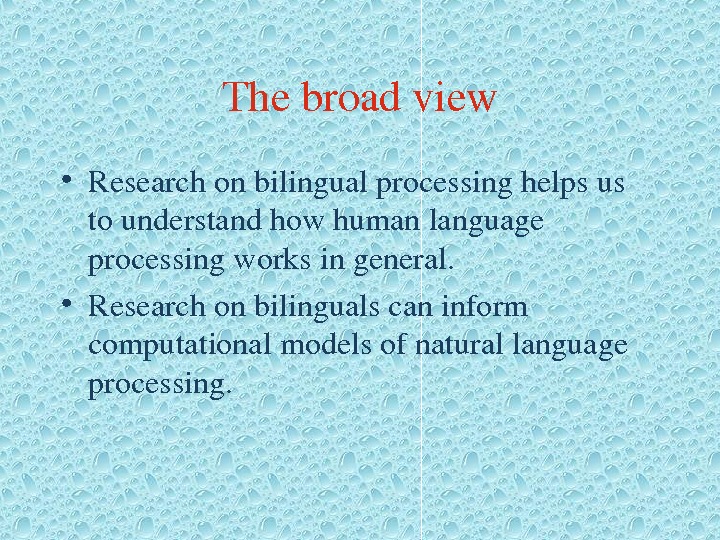
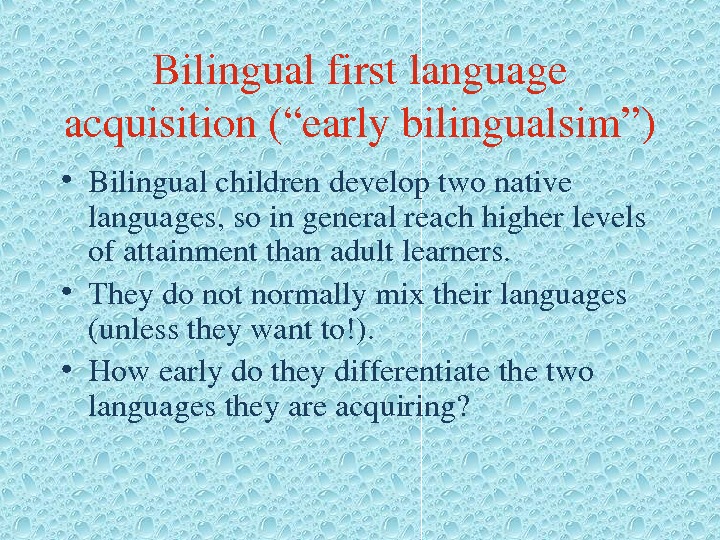
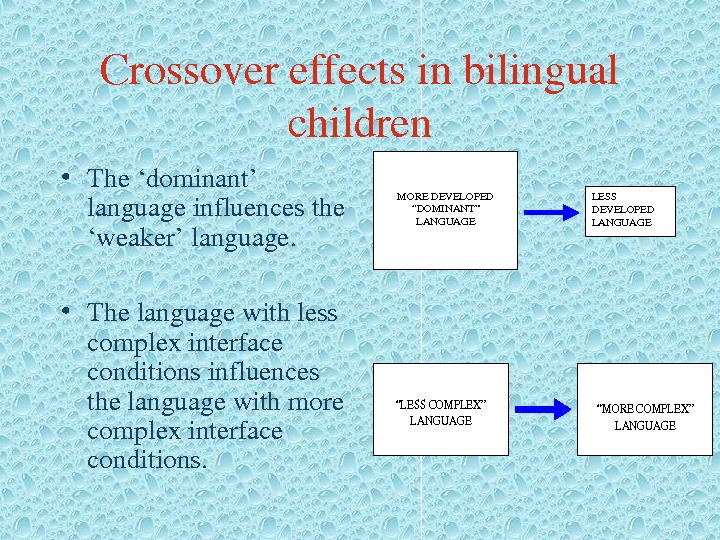
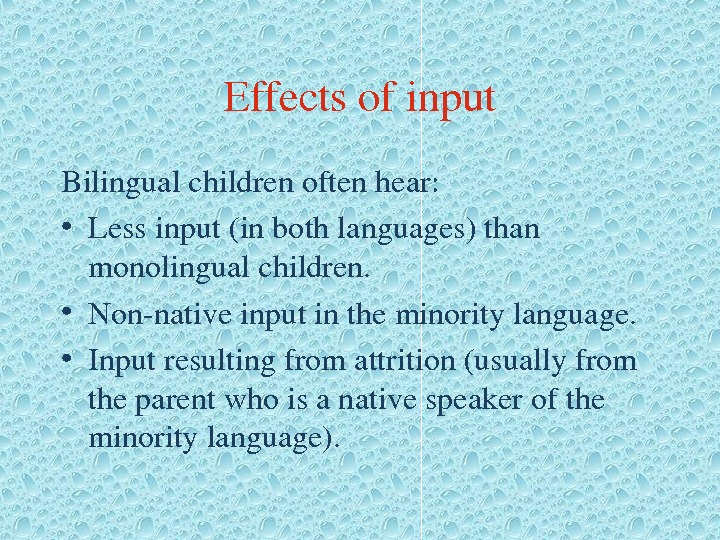



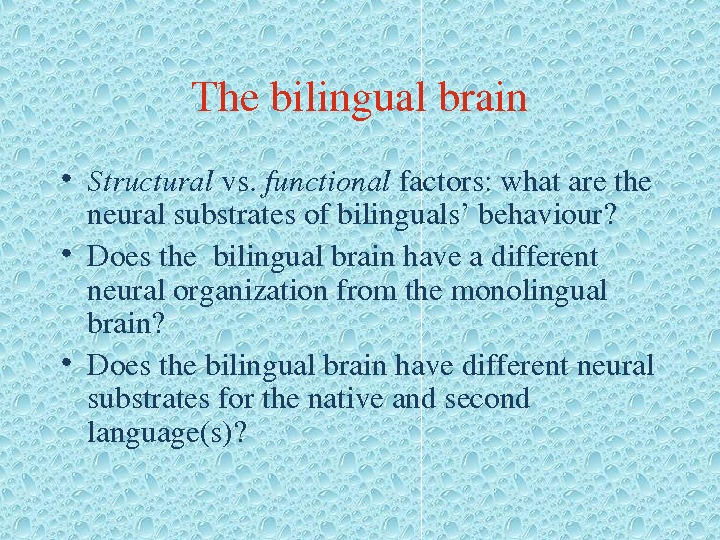

biligual_mind.ppt
- Размер: 421.5 Кб
- Количество слайдов: 38
Описание презентации Outline • Howsuccessfulcanyoubeifyoustart learningasecondlanguageasanadult? • Whatarethedifferencesbetween“early” по слайдам

 Outline • Howsuccessfulcanyoubeifyoustart learningasecondlanguageasanadult? • Whatarethedifferencesbetween“early” bilingualisminchildhoodand“late” bilingualisminadulthood? • Whathappenstoyourfirstlanguageafteryou havebeenspeakingasecondlanguagefor manyyears?
Outline • Howsuccessfulcanyoubeifyoustart learningasecondlanguageasanadult? • Whatarethedifferencesbetween“early” bilingualisminchildhoodand“late” bilingualisminadulthood? • Whathappenstoyourfirstlanguageafteryou havebeenspeakingasecondlanguagefor manyyears?
 Aninterdisciplinaryenterprise RESEARCHON THEBILINGUAL MINDLINGUISTICS EXPERIMENTAL PSYCHOLOGY COGNITIVE NEUROSCIEN
Aninterdisciplinaryenterprise RESEARCHON THEBILINGUAL MINDLINGUISTICS EXPERIMENTAL PSYCHOLOGY COGNITIVE NEUROSCIEN
 A“criticalperiod”forlanguage? • Inmanyanimalspecies, failuretolearnvarious skillsbeforeacertainagemakesitdifficultor evenimpossibletolearnthoseskillslater. E. g. : • Inducklings: abilitytoidentifyandfollowthe mother • Inkittens: abilitytoperceivevisualimages. • Insparrows: abilitytolearnthefather’ssong.
A“criticalperiod”forlanguage? • Inmanyanimalspecies, failuretolearnvarious skillsbeforeacertainagemakesitdifficultor evenimpossibletolearnthoseskillslater. E. g. : • Inducklings: abilitytoidentifyandfollowthe mother • Inkittens: abilitytoperceivevisualimages. • Insparrows: abilitytolearnthefather’ssong.
 Earlyexposuretolanguageis necessary • Childrenraisedinconditionsofextreme isolationanddeprivationdonotdevelop normalgrammaticalabilities. • Deafchildrenofhearingparentswhoare diagnosedasdeafwhentheyare 2 or 3 are impairedintheirdevelopmentofsign language.
Earlyexposuretolanguageis necessary • Childrenraisedinconditionsofextreme isolationanddeprivationdonotdevelop normalgrammaticalabilities. • Deafchildrenofhearingparentswhoare diagnosedasdeafwhentheyare 2 or 3 are impairedintheirdevelopmentofsign language.
 Whyacriticalperiodfor language? • Abiologicalmechanisminnatelygearedto theacquisitionoflanguageinourspecies. • Evolutionaryadvantagesofhavingthe mechanismearlyinlife.
Whyacriticalperiodfor language? • Abiologicalmechanisminnatelygearedto theacquisitionoflanguageinourspecies. • Evolutionaryadvantagesofhavingthe mechanismearlyinlife.
 Butwhatabout. SECOND language? • Doesthismeanthat secondlanguage learningis compromisedevenif firstlanguage developmentwas normal? • Doesthefactof alreadyknowinga languagehelp? FIRSTLANGUAGE SECONDLANGUAGE TRANSFERABLE SKILLS?
Butwhatabout. SECOND language? • Doesthismeanthat secondlanguage learningis compromisedevenif firstlanguage developmentwas normal? • Doesthefactof alreadyknowinga languagehelp? FIRSTLANGUAGE SECONDLANGUAGE TRANSFERABLE SKILLS?
 Nearnativespeakers • Speakerswhostarted learningasecond languageasadultsand reachedanexceptional levelofabilityinit. • Theywouldbeoffthe scaleinthe. IELTS bandof. English proficiency. 1 Nonuser 2 Intermittentuser 3 Extremely limiteduser 4 Limiteduser 5 Modestuser 6 Competentuser 7 Gooduser 8 Verygooduser 9 Expertuser 10 NEARNATIV
Nearnativespeakers • Speakerswhostarted learningasecond languageasadultsand reachedanexceptional levelofabilityinit. • Theywouldbeoffthe scaleinthe. IELTS bandof. English proficiency. 1 Nonuser 2 Intermittentuser 3 Extremely limiteduser 4 Limiteduser 5 Modestuser 6 Competentuser 7 Gooduser 8 Verygooduser 9 Expertuser 10 NEARNATIV
 Subjectpronounsin. Italian • Subjectpronounscanbeomittedwhentheyrefertoan entitythatisclearincontext: Marianonc’è, èandataacasa “ Mariaisn’there, shewenthome” • Theycannotbeomittedinothercases, forexample whentwoentitiesarecontrastedtooneanother: Mariae. Yurinonsicapiscono: leiparlal’italiano, lui no. “ Mariaand. Yuridon’tunderstandeachother: she speaks. Italian, hedoesn’t”.
Subjectpronounsin. Italian • Subjectpronounscanbeomittedwhentheyrefertoan entitythatisclearincontext: Marianonc’è, èandataacasa “ Mariaisn’there, shewenthome” • Theycannotbeomittedinothercases, forexample whentwoentitiesarecontrastedtooneanother: Mariae. Yurinonsicapiscono: leiparlal’italiano, lui no. “ Mariaand. Yuridon’tunderstandeachother: she speaks. Italian, hedoesn’t”.
 Twokindsofknowledge. INTERFACE CONDITIONS OMISSIONAMITALKING OFSUBJECTSABOUT PRONOUNSAKNOWNOMITSUBJECT POSSIBLEENTITY? AMIMAKING ACONTRASTDONOTOMITSUBJECT BETWEENTWO ENTITIES? ……. . MEANING INCONTEXT GRAMMAR OFITALIAN
Twokindsofknowledge. INTERFACE CONDITIONS OMISSIONAMITALKING OFSUBJECTSABOUT PRONOUNSAKNOWNOMITSUBJECT POSSIBLEENTITY? AMIMAKING ACONTRASTDONOTOMITSUBJECT BETWEENTWO ENTITIES? ……. . MEANING INCONTEXT GRAMMAR OFITALIAN
 Nearnativespeakers’errors • Nearnativespeakersof. Italianand. Spanishmay say: Marianonc’è, LEIèandataacasa. Mariaisn’there, shewenthome. • Isthisduetointerferencefrom. English?
Nearnativespeakers’errors • Nearnativespeakersof. Italianand. Spanishmay say: Marianonc’è, LEIèandataacasa. Mariaisn’there, shewenthome. • Isthisduetointerferencefrom. English?
 Can’tbe(only)interferencefrom English • English and Spanish nonnativespeakersof Italianmakethesamemistake. • Theyknowthatin. Italiansubjectpronouns canbeomitted; theyknowwhatthe contextualconditionsare. • Inmostcases, theyusesubjectpronouns correctly.
Can’tbe(only)interferencefrom English • English and Spanish nonnativespeakersof Italianmakethesamemistake. • Theyknowthatin. Italiansubjectpronouns canbeomitted; theyknowwhatthe contextualconditionsare. • Inmostcases, theyusesubjectpronouns correctly.
 Itcouldbeacoordinationproblem. COORDINATION FAILURE INTERFACE CONDITIONS MEANING INCONTEXT GRAMMAR OFITALIAN
Itcouldbeacoordinationproblem. COORDINATION FAILURE INTERFACE CONDITIONS MEANING INCONTEXT GRAMMAR OFITALIAN
 Anotherinterfaceproblemin nearnativespeakers • Thedifferencebetweenthesounds/i/and/I/: SHEEPSHIP CHEAPCHIP SEEKSICK BEATBIT DEEPDIP Etc.
Anotherinterfaceproblemin nearnativespeakers • Thedifferencebetweenthesounds/i/and/I/: SHEEPSHIP CHEAPCHIP SEEKSICK BEATBIT DEEPDIP Etc.
 Thenearnativespeaker’s dilemma. NATIVELIKE PHONETICABILITYTO DISTINGUISHAND PRONOUNCEPAIRSOF SOUNDSTHATDONOT CONTRASTINTHE NATIVELANGUAGE DIFFICULTYIN CONSTRUCTING PHONOLOGICAL REPRESENTATIONSOF THESECONTRASTS
Thenearnativespeaker’s dilemma. NATIVELIKE PHONETICABILITYTO DISTINGUISHAND PRONOUNCEPAIRSOF SOUNDSTHATDONOT CONTRASTINTHE NATIVELANGUAGE DIFFICULTYIN CONSTRUCTING PHONOLOGICAL REPRESENTATIONSOF THESECONTRASTS
 The‘snickersvs. sneakers’ problem THIS…. . OR THIS? Quick. Time ™ and a TIFF (LZ W) de co mpre ss o r are ne e de d to s e e this picture. Qu i ck. Ti m e™ an d a TI FF ( L Z W) decom pressor are n eeded t o see t h i s pi ct u re.
The‘snickersvs. sneakers’ problem THIS…. . OR THIS? Quick. Time ™ and a TIFF (LZ W) de co mpre ss o r are ne e de d to s e e this picture. Qu i ck. Ti m e™ an d a TI FF ( L Z W) decom pressor are n eeded t o see t h i s pi ct u re.
 Moreoninterfaces: auxiliary verbsin. Italian • ESSERE‘be’and. AVERE‘have’. Mariahalavorato. ‘Mariahasworked’ Mariaèpartita. ‘Mariahasleft’ • Samedistinctionas. ETREvs. AVOIRin. French: Marieatravaill é. Marieestpartie. • Inearlymodern. English: Christisrisen. The. Lordiscome.
Moreoninterfaces: auxiliary verbsin. Italian • ESSERE‘be’and. AVERE‘have’. Mariahalavorato. ‘Mariahasworked’ Mariaèpartita. ‘Mariahasleft’ • Samedistinctionas. ETREvs. AVOIRin. French: Marieatravaill é. Marieestpartie. • Inearlymodern. English: Christisrisen. The. Lordiscome.
 In. Italianasasecondlanguage… • Auxiliary. ESSEREwithverbssuchas arrivare ‘arrive’, venire ‘come’, partire ‘leave’> ACQUIREDEARLY. • Auxiliary. ESSEREwithverbssuchas rimanere ‘stay’, bastare ‘suffice’, piacere ‘like’> ACQUIREDMUCHLATER ORNOTACQUIREDATALL, NOT EVENATTHENEARNATIVELEVEL.
In. Italianasasecondlanguage… • Auxiliary. ESSEREwithverbssuchas arrivare ‘arrive’, venire ‘come’, partire ‘leave’> ACQUIREDEARLY. • Auxiliary. ESSEREwithverbssuchas rimanere ‘stay’, bastare ‘suffice’, piacere ‘like’> ACQUIREDMUCHLATER ORNOTACQUIREDATALL, NOT EVENATTHENEARNATIVELEVEL.
 Nativespeakershavegradient intuitions • Nativespeakersof. Italian, French, German and. Dutch. STRONGLYAGREEonthefact that(theequivalentsof)verbssuchas arrive, leave, come select(theequivalents of)BE. • They. DISAGREE, orare. UNCERTAIN, on like, stay, exist: sometimestheylikethem with. BE, sometimeswith. HAVE.
Nativespeakershavegradient intuitions • Nativespeakersof. Italian, French, German and. Dutch. STRONGLYAGREEonthefact that(theequivalentsof)verbssuchas arrive, leave, come select(theequivalents of)BE. • They. DISAGREE, orare. UNCERTAIN, on like, stay, exist: sometimestheylikethem with. BE, sometimeswith. HAVE.
 The. Auxiliary. Selection. Hierarchy • Thechoiceofauxiliariesisconditionednotonlyby thegrammar, butalsobythesemantictypeofverb. CHANGEOFLOCATION ‘ BE’ (arrive, comeleave, etc. ) EXISTENCEOFSTATE (like, stay, besufficient, etc. ) HUMANACTIVITY ‘HAVE’ (work, talk, play, etc. )
The. Auxiliary. Selection. Hierarchy • Thechoiceofauxiliariesisconditionednotonlyby thegrammar, butalsobythesemantictypeofverb. CHANGEOFLOCATION ‘ BE’ (arrive, comeleave, etc. ) EXISTENCEOFSTATE (like, stay, besufficient, etc. ) HUMANACTIVITY ‘HAVE’ (work, talk, play, etc. )
 Anotherproblematicinterface. AUXILIARYSELECTION HIERARCHY INTERFACE CONDITIONS MEANING OFVERBS AUXILIARIES ESSERE/ AVER
Anotherproblematicinterface. AUXILIARYSELECTION HIERARCHY INTERFACE CONDITIONS MEANING OFVERBS AUXILIARIES ESSERE/ AVER
 Amethodologicalspinoff: how todetectgradience • Ifdevelopmentaldataaregradient, weneeda methodthatcandetectgradience. • Magnitudeestimation , amethodborrowed frompsychophysics, allowsresearchersto capturefine‘shadesofgray’injudgmentsof linguisticacceptability. • See http: //www. webexp. info forawebbased applicationof. Magnitude. Estimation developedby. Frank. Kelletand. Martin. Corley.
Amethodologicalspinoff: how todetectgradience • Ifdevelopmentaldataaregradient, weneeda methodthatcandetectgradience. • Magnitudeestimation , amethodborrowed frompsychophysics, allowsresearchersto capturefine‘shadesofgray’injudgmentsof linguisticacceptability. • See http: //www. webexp. info forawebbased applicationof. Magnitude. Estimation developedby. Frank. Kelletand. Martin. Corley.
 Thestorysofar • Manypropertiesofgrammarcanbe successfullyacquiredinasecondlanguage, butpropertiesthatinvolveinterfaces betweendifferentaspectsoflanguagemay remainnonnativeevenatthehighestlevel ofattainment.
Thestorysofar • Manypropertiesofgrammarcanbe successfullyacquiredinasecondlanguage, butpropertiesthatinvolveinterfaces betweendifferentaspectsoflanguagemay remainnonnativeevenatthehighestlevel ofattainment.
 Whathappenstoyourfirst languageafteryouhavebeen speakingasecondlanguagefora longtime?
Whathappenstoyourfirst languageafteryouhavebeen speakingasecondlanguagefora longtime?
 Effectsofthesecondlanguageon thefirstlanguage. FIRSTLANGUAGESECONDLANGUAGE “ATTRITION”
Effectsofthesecondlanguageon thefirstlanguage. FIRSTLANGUAGESECONDLANGUAGE “ATTRITION”
 STAGE 0 INDIVIDUAL SPEAKERGOESTO LIVEINA FOREIGN COUNTRY STAGE 1 INDIVIDUAL SPEAKERLIVES ABROADFORMANY YEARSANDSPEAKS THEHOST LANGUAGEMORE OFTENTHANHIS NATIVELANGUAGE. STAGE 2 NEXTGENERATION ARENATIVE SPEAKERSOFTHE HOSTLANGUAGE; THEYMAYSPEAKOR UNDERSTANDTHEIR PARENTS’ LANGUAGE. STAGE 3 NEXTGENERATION ARENATIVE SPEAKERSOFTHE HOSTLANGUAGE ANDDONOTSPEAK THEIR GRANDPARENTS’ LANGUAGE.
STAGE 0 INDIVIDUAL SPEAKERGOESTO LIVEINA FOREIGN COUNTRY STAGE 1 INDIVIDUAL SPEAKERLIVES ABROADFORMANY YEARSANDSPEAKS THEHOST LANGUAGEMORE OFTENTHANHIS NATIVELANGUAGE. STAGE 2 NEXTGENERATION ARENATIVE SPEAKERSOFTHE HOSTLANGUAGE; THEYMAYSPEAKOR UNDERSTANDTHEIR PARENTS’ LANGUAGE. STAGE 3 NEXTGENERATION ARENATIVE SPEAKERSOFTHE HOSTLANGUAGE ANDDONOTSPEAK THEIR GRANDPARENTS’ LANGUAGE.
 Exnativespeakers • Speakersexperiencingattritionintheir nativelanguageat. Stage 1 haveproblems withconstructionsthatrequirethe integrationofdifferenttypesofknowledge, justlikenearnativespeakers. Theyalsosay: Marianonc’è, LEIèandataacasa
Exnativespeakers • Speakersexperiencingattritionintheir nativelanguageat. Stage 1 haveproblems withconstructionsthatrequirethe integrationofdifferenttypesofknowledge, justlikenearnativespeakers. Theyalsosay: Marianonc’è, LEIèandataacasa
 • Exnativespeakersof. Spanishoftenleaveoutthe preposition a withanimatedirectobjects: Mariavioamiabuela “ Mariasawmygrandmother” Mariaviolapelícula. “ Mariasawthefilm”. • Thispropertyisalsoappliedinconsistentlyby advancednonnativespeakersof. Spanish.
• Exnativespeakersof. Spanishoftenleaveoutthe preposition a withanimatedirectobjects: Mariavioamiabuela “ Mariasawmygrandmother” Mariaviolapelícula. “ Mariasawthefilm”. • Thispropertyisalsoappliedinconsistentlyby advancednonnativespeakersof. Spanish.
 “ Interface”aspects: lastin, firstout. NOTCOMPLETEDACQUIREDINSECONDLANGUAGEACQUISITION INTERFACE CONDITIONS FIRSTTOGOINNATIVELANGUAGEATTRITION MEANING INCONTEXT GRAMMAR
“ Interface”aspects: lastin, firstout. NOTCOMPLETEDACQUIREDINSECONDLANGUAGEACQUISITION INTERFACE CONDITIONS FIRSTTOGOINNATIVELANGUAGEATTRITION MEANING INCONTEXT GRAMMAR
 Thebroadview • Researchonbilingualprocessinghelpsus tounderstandhowhumanlanguage processingworksingeneral. • Researchonbilingualscaninform computationalmodelsofnaturallanguage processing.
Thebroadview • Researchonbilingualprocessinghelpsus tounderstandhowhumanlanguage processingworksingeneral. • Researchonbilingualscaninform computationalmodelsofnaturallanguage processing.
 Bilingualfirstlanguage acquisition(“earlybilingualsim”) • Bilingualchildrendeveloptwonative languages, soingeneralreachhigherlevels ofattainmentthanadultlearners. • Theydonotnormallymixtheirlanguages (unlesstheywantto!). • Howearlydotheydifferentiatethetwo languagestheyareacquiring?
Bilingualfirstlanguage acquisition(“earlybilingualsim”) • Bilingualchildrendeveloptwonative languages, soingeneralreachhigherlevels ofattainmentthanadultlearners. • Theydonotnormallymixtheirlanguages (unlesstheywantto!). • Howearlydotheydifferentiatethetwo languagestheyareacquiring?
 Crossovereffectsinbilingual children • The‘dominant’ languageinfluencesthe ‘weaker’language. • Thelanguagewithless complexinterface conditionsinfluences thelanguagewithmore complexinterface conditions. MOREDEVELOPED “DOMINANT” LANGUAGE LESS DEVELOPED LANGUAGE “LESSCOMPLEX” LANGUAGE “MORECOMPLEX” LANGUAG
Crossovereffectsinbilingual children • The‘dominant’ languageinfluencesthe ‘weaker’language. • Thelanguagewithless complexinterface conditionsinfluences thelanguagewithmore complexinterface conditions. MOREDEVELOPED “DOMINANT” LANGUAGE LESS DEVELOPED LANGUAGE “LESSCOMPLEX” LANGUAGE “MORECOMPLEX” LANGUAG
 Effectsofinput Bilingualchildrenoftenhear: • Lessinput(inbothlanguages)than monolingualchildren. • Nonnativeinputintheminoritylanguage. • Inputresultingfromattrition(usuallyfrom theparentwhoisanativespeakerofthe minoritylanguage).
Effectsofinput Bilingualchildrenoftenhear: • Lessinput(inbothlanguages)than monolingualchildren. • Nonnativeinputintheminoritylanguage. • Inputresultingfromattrition(usuallyfrom theparentwhoisanativespeakerofthe minoritylanguage).
 Effectsofbilingualismon nonlinguistictasks • Doesthebilingual’sexperienceof constantlymanagingtwolinguisticsystems haveaneffectoncoordinationin nonlinguistictasks?
Effectsofbilingualismon nonlinguistictasks • Doesthebilingual’sexperienceof constantlymanagingtwolinguisticsystems haveaneffectoncoordinationin nonlinguistictasks?
 “ Cognitivecontrol”involves…. • Paying selective attention to the relevant aspects of a problem • Inhibiting attention to irrelevant information • Switching between competing alternatives.
“ Cognitivecontrol”involves…. • Paying selective attention to the relevant aspects of a problem • Inhibiting attention to irrelevant information • Switching between competing alternatives.
 Futureresearch • Isthereadifferencebetween‘early’and ‘late’bilingualswithrespecttocognitive controlinnonlinguistictasks? • Theanswerwillbringuscloserto understandingtherelationshipbetween languageandothercognitivefaculties.
Futureresearch • Isthereadifferencebetween‘early’and ‘late’bilingualswithrespecttocognitive controlinnonlinguistictasks? • Theanswerwillbringuscloserto understandingtherelationshipbetween languageandothercognitivefaculties.
 Thebilingualbrain • Structural vs. functional factors: whatarethe neuralsubstratesofbilinguals’behaviour? • Doesthebilingualbrainhaveadifferent neuralorganizationfromthemonolingual brain? • Doesthebilingualbrainhavedifferentneural substratesforthenativeandsecond language(s)?
Thebilingualbrain • Structural vs. functional factors: whatarethe neuralsubstratesofbilinguals’behaviour? • Doesthebilingualbrainhaveadifferent neuralorganizationfromthemonolingual brain? • Doesthebilingualbrainhavedifferentneural substratesforthenativeandsecond language(s)?
 Toconclude: Thecognitivestudyofthe bilingualmindisanexciting interdisciplinaryenterprise.
Toconclude: Thecognitivestudyofthe bilingualmindisanexciting interdisciplinaryenterprise.

